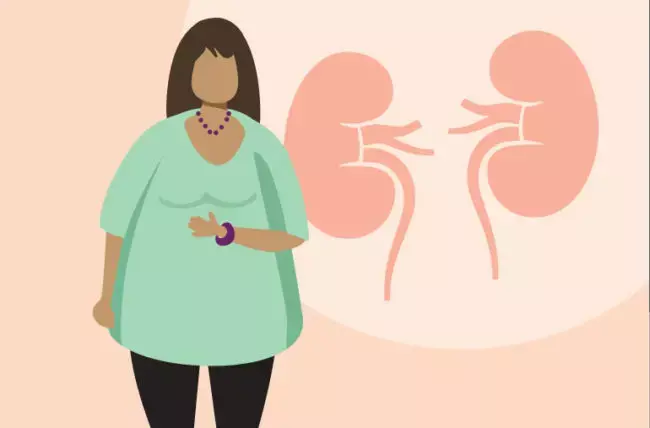- Home
- Medical news & Guidelines
- Anesthesiology
- Cardiology and CTVS
- Critical Care
- Dentistry
- Dermatology
- Diabetes and Endocrinology
- ENT
- Gastroenterology
- Medicine
- Nephrology
- Neurology
- Obstretics-Gynaecology
- Oncology
- Ophthalmology
- Orthopaedics
- Pediatrics-Neonatology
- Psychiatry
- Pulmonology
- Radiology
- Surgery
- Urology
- Laboratory Medicine
- Diet
- Nursing
- Paramedical
- Physiotherapy
- Health news
- Fact Check
- Bone Health Fact Check
- Brain Health Fact Check
- Cancer Related Fact Check
- Child Care Fact Check
- Dental and oral health fact check
- Diabetes and metabolic health fact check
- Diet and Nutrition Fact Check
- Eye and ENT Care Fact Check
- Fitness fact check
- Gut health fact check
- Heart health fact check
- Kidney health fact check
- Medical education fact check
- Men's health fact check
- Respiratory fact check
- Skin and hair care fact check
- Vaccine and Immunization fact check
- Women's health fact check
- AYUSH
- State News
- Andaman and Nicobar Islands
- Andhra Pradesh
- Arunachal Pradesh
- Assam
- Bihar
- Chandigarh
- Chattisgarh
- Dadra and Nagar Haveli
- Daman and Diu
- Delhi
- Goa
- Gujarat
- Haryana
- Himachal Pradesh
- Jammu & Kashmir
- Jharkhand
- Karnataka
- Kerala
- Ladakh
- Lakshadweep
- Madhya Pradesh
- Maharashtra
- Manipur
- Meghalaya
- Mizoram
- Nagaland
- Odisha
- Puducherry
- Punjab
- Rajasthan
- Sikkim
- Tamil Nadu
- Telangana
- Tripura
- Uttar Pradesh
- Uttrakhand
- West Bengal
- Medical Education
- Industry
Metabolically Healthy Obesity a misnomer- Overweight don't escape from incident CKD: Study

The phrase "metabolically healthy obesity" (obesity without any metabolic abnormality) first entered the scientific lexicon in the early 2000s, when some observational data indicated insulin resistance was not a universal or inevitable finding among all persons with obesity. In a recent study, researchers have found that people living with 'healthy' obesity have a 66% higher risk of developing chronic kidney disease (CKD) compared to metabolically healthy individuals with normal weight. The study findings were published in the American Journal of Kidney Disease on June 16, 2021.
Metabolically healthy obesity is not considered to be associated with an increased risk of morbidity and mortality. To further explore, Dr Krishnarajah Niratharakumar and his team conducted a study and assessed the association between metabolically healthy overweight/obesity and the risk of incident CKD in a British primary care population.
In a retrospective population-based cohort study, the researchers included around 4.5 million individuals from the UK's Health Improvement Network (THIN) database and tracked their health over an average of almost five-and-a-half years. Among 4.5 million individuals, 1,040,921 (23.4%) and 588,909 (13.2%) were metabolically healthy overweight and metabolically healthy obese, respectively.
They categorized 11 body size phenotypes defined by BMI categories (underweight, normal weight, overweight, and obesity) and 3 metabolic abnormalities (diabetes, hypertension, and dyslipidemia). The major outcome assessed was incident CKD defined as a recorded code for kidney replacement therapy, a recorded diagnosis of CKD, or by an estimated glomerular filtration rate of <60 mL/min/1.73 m2 for ≥90 days, or a urinary albumin-creatinine ratio >3 mg/mmol for ≥90 days.
Key findings of the study:
- Upon comparing individuals with a metabolically healthy normal weight and healthy overweight/ Obesity, the researchers found a higher risk of incident CKD among those who had metabolically healthy overweight (adjusted HR, 1.30 ) and metabolically healthy obesity (adjusted HR, 1.66).
- They noted that the association was stronger in those younger than 65 years of age.
- In all BMI categories, they observed a greater risk of incident CKD with a greater number of metabolic abnormalities in a graded manner.
The authors concluded, "Overweight and obesity without metabolic abnormality are associated with a higher risk of incident CKD compared with those with normal body weight and no metabolic abnormality".
In an accompanying editorial, Dr Srinivasan Beddhu and his team wrote, "First, we should abandon the term "metabolically healthy obesity." We often see patients in our clinical practice who have reduced eGFR and/or albuminuria and no other risk factors for CKD except obesity. In all cases, we should counsel our patients regarding the hazards of overweight and obesity, as obesity is a risk, or a risk accelerator, for incident CKD. As nephrologists become increasingly focused on reducing cardiometabolic risk as well as the risk of progressive CKD, we should become more facile with dietary, medical, surgical, and other effective weight-loss strategies."
For further information:
Dr Kartikeya Kohli is an Internal Medicine Consultant at Sitaram Bhartia Hospital in Delhi with super speciality training in Nephrology. He has worked with various eminent hospitals like Indraprastha Apollo Hospital, Sir Gangaram Hospital. He holds an MBBS from Kasturba Medical College Manipal, DNB Internal Medicine, Post Graduate Diploma in Clinical Research and Business Development, Fellow DNB Nephrology, MRCP and ECFMG Certification. He has been closely associated with India Medical Association South Delhi Branch and Delhi Medical Association and has been organising continuing medical education programs on their behalf from time to time. Further he has been contributing medical articles for their newsletters as well. He is also associated with electronic media and TV for conduction and presentation of health programs. He has been associated with Medical Dialogues for last 3 years and contributing articles on regular basis.
Dr Kamal Kant Kohli-MBBS, DTCD- a chest specialist with more than 30 years of practice and a flair for writing clinical articles, Dr Kamal Kant Kohli joined Medical Dialogues as a Chief Editor of Medical News. Besides writing articles, as an editor, he proofreads and verifies all the medical content published on Medical Dialogues including those coming from journals, studies,medical conferences,guidelines etc. Email: drkohli@medicaldialogues.in. Contact no. 011-43720751


